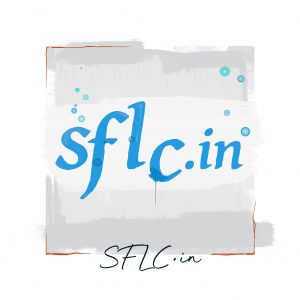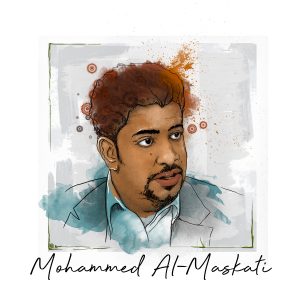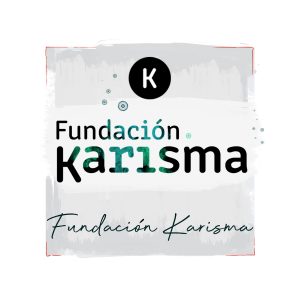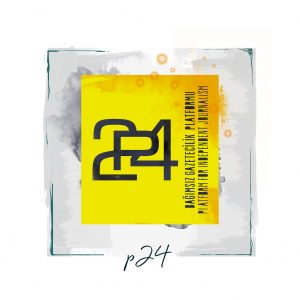20 Mar 2019 | Awards, News
[vc_row][vc_column][vc_video link=”https://youtu.be/Ux4icHaQpoQ”][vc_column_text] SFLC.in (Software Freedom Law Centre) tracks internet shutdowns in India, a crucial service in a country with the most online blackouts of any country in the world. The tracker was the first initiative of its kind in India, and has quickly become the top source for journalists reporting on the issue.
SFLC.in (Software Freedom Law Centre) tracks internet shutdowns in India, a crucial service in a country with the most online blackouts of any country in the world. The tracker was the first initiative of its kind in India, and has quickly become the top source for journalists reporting on the issue.
More Indians are gaining access to the internet and the government even rolled out a Digital India project to make government services available to its citizens online. But while this move online has been beneficial for many, internet connections have also become less reliable.
SFLC.in has noticed a staggering increase in the number and frequency of shutdowns in the country, often to subdue unrest or prevent cheating during examinations. The organisation has recorded at least 251 shutdowns since 2012, 113 of which took place in 2018 alone, the most in any country in the world – and by a wide margin.
Since service providers don’t notify the public of a shutdown, SFLC.in monitors the national and local press, and then updates its Internet Shutdown Tracker with any reports. The tracker takes the form of a real-time map of ongoing shutdowns by state and district, so that the information can be used to hold local institutions accountable.
The website also provides reports and analysis based on the project’s database, and keeps a record of blocked URLs and take-down notices received by websites. SFLC.in has since made the source code available for activists for free.
The tracker has become a go-to resource for politicians and MPs as well as reporters: it was cited in discussions in the Indian parliament, and its data convinced the government to amend existing legislation.
The organisation, which brings together lawyers, policy analysts and technologists to fight for digital rights, produces reports and studies on the state of the Indian internet, also has a productive legal arm. SFLC.in has conducted landmark litigation cases, petitioned the government on freedom of expression and internet issues, and campaigned for WhatsApp and Facebook to fix a feature of their platform that has been used to harass women in India.
It also provides training and pro-bono services to journalists, activists and comedians whose rights have been curtailed.
SFLC.in recently expanded the project to include a mechanism for citizens to report shutdowns in their area and provide information on how it affected them and their communities. In parallel, SFLC.in is seeking to deepen the understanding of economic losses caused by internet shutdowns, and to step up its advocacy and strategic litigation work to prevent authorities from shutting down the internet illegally or beyond situations of public emergency and public safety.[/vc_column_text][vc_separator][vc_row_inner][vc_column_inner width=”1/2″][vc_single_image image=”104691″ img_size=”full” onclick=”custom_link” link=”https://www.indexoncensorship.org/2019/01/awards-2019/”][/vc_column_inner][vc_column_inner width=”1/2″][vc_column_text]
Index on Censorship’s Freedom of Expression Awards exist to celebrate individuals or groups who have had a significant impact fighting censorship anywhere in the world.[/vc_column_text][/vc_column_inner][/vc_row_inner][vc_separator][/vc_column][/vc_row][vc_row][vc_column][vc_basic_grid post_type=”post” max_items=”4″ element_width=”6″ grid_id=”vc_gid:1552650168972-e2837402-6210-3″ taxonomies=”26925″][/vc_column][/vc_row]
19 Mar 2019 | Awards, News
[vc_row][vc_column][vc_video link=”https://youtu.be/1VVGMgSHM6U”][vc_column_text] Mohammed al-Maskati is a Bahraini activist and digital security consultant who provides digital security training to activists in the Middle East and in North Africa.
Mohammed al-Maskati is a Bahraini activist and digital security consultant who provides digital security training to activists in the Middle East and in North Africa.
Working as Frontline Defenders’ Digital Protection Consultant for the MENA Region, Mohammed teaches activists – ranging from vulnerable minorities to renowned campaigners taking on whole governments – to get the truth out despite governments’ attempt to shut them down. He educates them on the use of VPNs, and how to avoid falling into phishing or malware traps, create safe passwords and keep their accounts anonymous.
The MENA region is one of the most oppressive areas of the world for human rights defenders, but it is too often ignored by app and software developers, who do not provide products or instructions manual in Arabic.
Mohammed Al-Maskati opens the door to using digital security apps, and as a direct result of his training, a growing number of activists in the Middle East have reported being able to avoid government surveillance and reprisals.
Regional governments have also taken notice of Mohammed’s activities. In May 2014, during a visit to Oman, he was kidnapped from a taxi and disappeared for three days, during which he was asked the names of the people he was helping. He has been banned from travelling to at least five countries, making it more difficult to reach activists in the region.
A good example is Mohammed’s work in Iraq. Demonstrations erupted in September, and clashes broke out between protesters and Iraqi forces. The independent media websites reporting on the unrest were soon taken down by the government.
Mohammed travelled to Iraq and helped the activists to circumvent censorship, and the websites were able to keep going.
He had a similar impact in Egypt ahead of the March 2018 national elections, when the government was censoring not only websites but also several VPN services. Mohammed was able to arrange for a group of organisations to offer their VPN for free to Egyptian human rights defenders and journalists.
Mohammed has also been active to circumvent his travel ban. He has written Arabic-language training manuals on digital security, which he has released online, and set up a digital security email newsletter. He is also the founder of and part of the rapid response team, which is available 24 hours a day 7 days a week to help tackle digital attacks as they happen in real time.[/vc_column_text][vc_separator][vc_row_inner][vc_column_inner width=”1/2″][vc_single_image image=”104691″ img_size=”full” onclick=”custom_link” link=”https://www.indexoncensorship.org/2019/01/awards-2019/”][/vc_column_inner][vc_column_inner width=”1/2″][vc_column_text]
Index on Censorship’s Freedom of Expression Awards exist to celebrate individuals or groups who have had a significant impact fighting censorship anywhere in the world.[/vc_column_text][/vc_column_inner][/vc_row_inner][vc_separator][/vc_column][/vc_row][vc_row][vc_column][vc_basic_grid post_type=”post” max_items=”4″ element_width=”6″ grid_id=”vc_gid:1552650108302-4a47418b-5e3e-10″ taxonomies=”26925″][/vc_column][/vc_row]
18 Mar 2019 | Awards, News
[vc_row][vc_column][vc_video link=”https://youtu.be/Ex0EURB6Zk8″][vc_column_text] Colombia’s Fundación Karisma is a civil society organisation devoted to encouraging the use of digital technology and enhancing freedom of expression on the internet.
Colombia’s Fundación Karisma is a civil society organisation devoted to encouraging the use of digital technology and enhancing freedom of expression on the internet.
The organisation offers a rare space to discuss many issues at the intersection of human rights and technology in the country.
Karisma identifies areas of concern — like the online harassment of women — in Colombia’s digital sphere, and then tackles them through a mix of research, advocacy and digital tools.
One such initiative is Fundación Karisma’s “Machitroll Alert”, an online tool that uses humour to tackle misogynism online. Abuse and harassment online is leading increasing numbers of women to self-censor or withdraw from debates online.
Fundación Karisma’s tool allows internet users to call out misogynistic abuse online (or machist trolls, in short ‘machitroll’). Users upload screenshots of abuse, and place a stamp to mark their alert: Incurable Machitroll, Recoverable Machitroll or Machitroll Alert, and then post it online with a funny message. An example: “You are suffering a lot! Have an herbal infusion before bed and occasionally wear a pastel coloured garment. You will see that you will continue to be just as macho, but less aggressive.”
The initiative provides an alternative, non re-victimising course of action for women facing abuse online, while drawing attention to the amount of online harassment in Colombia and its chilling effect on women.
While ‘Machitroll Alert’ has been one of Fundación Karisma’s successes, the intersection of gender, free expression and the internet is not its only focus. Its “Sharing is not a crime” campaign supports open access to knowledge against the backdrop of Colombia’s restrictive copyright legislation. The campaign started after a young student faced criminal prosecution for posting a publicly funded master’s thesis on the internet, and thanks to Karisma and support from international organisations, the student was acquitted in December 2017.
While “Machitroll Alert” was launched in 2015, it has expanded over the years, and Fundación Karisma keeps adding content to the initiative.
Another addition to the project has been the campaign to make it visible beyond the online world with a series of workshops and events across the country. The first four events took place in Bogotá in September and October 2018.[/vc_column_text][vc_separator][vc_row_inner][vc_column_inner width=”1/2″][vc_single_image image=”104691″ img_size=”full” onclick=”custom_link” link=”https://www.indexoncensorship.org/2019/01/awards-2019/”][/vc_column_inner][vc_column_inner width=”1/2″][vc_column_text]
Index on Censorship’s Freedom of Expression Awards exist to celebrate individuals or groups who have had a significant impact fighting censorship anywhere in the world.[/vc_column_text][/vc_column_inner][/vc_row_inner][vc_separator][/vc_column][/vc_row][vc_row][vc_column][vc_basic_grid post_type=”post” max_items=”4″ element_width=”6″ grid_id=”vc_gid:1552649999151-8ee70357-5058-7″ taxonomies=”26925″][/vc_column][/vc_row]
14 Mar 2019 | Awards, News
[vc_row][vc_column][vc_video link=”https://youtu.be/AYDg8H16K0s”][vc_column_text] P24 (Platform for Independent Journalism) is a civil society organisation with an ambitious program to neutralise censorship in Turkey — a country in which speaking freely courts fines, arrest and lengthy jail sentences.
P24 (Platform for Independent Journalism) is a civil society organisation with an ambitious program to neutralise censorship in Turkey — a country in which speaking freely courts fines, arrest and lengthy jail sentences.
Turkey has become increasingly hostile to dissent in recent years. It recently replaced the emergency rule that started after the 2016 failed putsch with a presidential system in which executive powers are often unchecked. The country is the world’s largest jailer of journalists: some 183 journalists and media workers are in prison at the time of writing, including many in pre-trial detention.
But journalists are not the only ones in danger: academics, artists and ordinary Turks expressing dissent have faced legal sanctions, economic pressure, and even arrests. In a famous case, a woman was detained after being overheard criticising the Turkish president – while talking to a friend on a bus. Even some of P24’s workers have been detained, although not for their work with the organisation.
What makes P24 impressive is that it has been able to mount an ambitious programme even in such a high-risk environment, providing a glimmer of hope for civil society in Turkey. It has created a set of mutually reinforcing activities to promote free expression and fight to fill the democratic deficit.
Its legal team defends journalists and academics who are on trial because they exercised their right to free expression. P24 does its legal work on a pro bono basis, hoping to set important precedents in the Turkish legal system.
P24 also undertakes coordinated social media and public advocacy that include live-tweeting from courtrooms and campaigning through an array of websites, newsletters and exhibition spaces. One of its efforts — Expression Interrupted – is a website and newsletter tracking the progress of freedom of expression cases throughout the country.
P24 also provides safe spaces for freedom of expression. Susma24 is an outreach programme in which it brings together local bar associations and artistic communities. Through K24 and KIRAATHANE, its newly launched literature house, P24 also offers freelance opportunities and visibility to those excluded from the mainstream by the government’s ongoing stifling of dissent.
P24, one of Turkey’s most active civil society organisations secured the release of a young photographer, Cağdaş Erdoğan. While Erdoğan has been able to exhibit in Europe, no Turkish gallery wanted to show his photography – so P24 organised an exhibition in its new Literature House “KIRAATHANE”, one of its latest initiatives. In 2018, P24 also published three books on journalism, innovation and media freedom in its media library.[/vc_column_text][vc_separator][vc_row_inner][vc_column_inner width=”1/2″][vc_single_image image=”104691″ img_size=”full” onclick=”custom_link” link=”https://www.indexoncensorship.org/2019/01/awards-2019/”][/vc_column_inner][vc_column_inner width=”1/2″][vc_column_text]
Index on Censorship’s Freedom of Expression Awards exist to celebrate individuals or groups who have had a significant impact fighting censorship anywhere in the world.[/vc_column_text][/vc_column_inner][/vc_row_inner][vc_separator][/vc_column][/vc_row][vc_row][vc_column][vc_basic_grid post_type=”post” max_items=”4″ element_width=”6″ grid_id=”vc_gid:1552057651002-8eabcc7d-44fd-4″ taxonomies=”26925″][/vc_column][/vc_row]
 SFLC.in (Software Freedom Law Centre) tracks internet shutdowns in India, a crucial service in a country with the most online blackouts of any country in the world. The tracker was the first initiative of its kind in India, and has quickly become the top source for journalists reporting on the issue.
SFLC.in (Software Freedom Law Centre) tracks internet shutdowns in India, a crucial service in a country with the most online blackouts of any country in the world. The tracker was the first initiative of its kind in India, and has quickly become the top source for journalists reporting on the issue.
 Mohammed al-Maskati is a Bahraini activist and digital security consultant who provides digital security training to activists in the Middle East and in North Africa.
Mohammed al-Maskati is a Bahraini activist and digital security consultant who provides digital security training to activists in the Middle East and in North Africa. Colombia’s Fundación Karisma is a civil society organisation devoted to encouraging the use of digital technology and enhancing freedom of expression on the internet.
Colombia’s Fundación Karisma is a civil society organisation devoted to encouraging the use of digital technology and enhancing freedom of expression on the internet. P24 (Platform for Independent Journalism) is a civil society organisation with an ambitious program to neutralise censorship in Turkey — a country in which speaking freely courts fines, arrest and lengthy jail sentences.
P24 (Platform for Independent Journalism) is a civil society organisation with an ambitious program to neutralise censorship in Turkey — a country in which speaking freely courts fines, arrest and lengthy jail sentences.